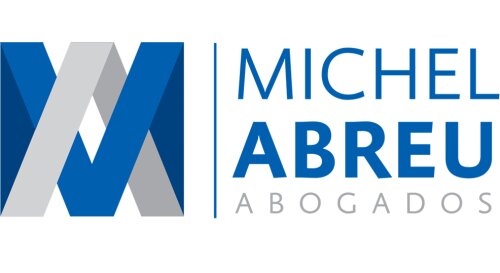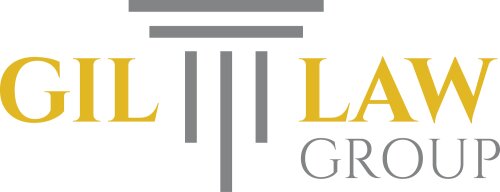Best Mining Law Lawyers in Punta Cana
Share your needs with us, get contacted by law firms.
Free. Takes 2 min.
List of the best lawyers in Punta Cana, Dominican Republic
About Mining Law in Punta Cana, Dominican Republic
Mining Law in Punta Cana, Dominican Republic, is governed primarily by national regulations, notably the Mining Law No. 146 of 1971, as well as local and environmental ordinances. Punta Cana itself is known for its tourism industry, but the broader province and nearby regions hold mineral resources such as nickel, gold, silver, and sand. Mining Law establishes the legal framework for exploration, extraction, permitting, environmental responsibility, and dispute resolution for mining activities. It also dictates the processes for granting mining concessions and obligations related to community and environmental impacts. Understanding these laws is crucial if you are seeking to operate, invest, or resolve disputes within the mining sector in this part of the Dominican Republic.
Why You May Need a Lawyer
Engaging in mining activities or related business in Punta Cana requires careful navigation of legal, regulatory, and environmental matters. Here are some common situations where legal help is highly recommended:
- Applying for exploration or exploitation concessions
- Negotiating mining contracts or joint ventures
- Ensuring compliance with environmental and local government regulations
- Resolving disputes with landowners, local communities, or other miners
- Transferring, selling, or inheriting mining rights or concessions
- Addressing governmental sanctions or fines
- Foreign investment and navigating relevant business laws
- Ensuring labor law compliance for mining operations
A lawyer specializing in Mining Law can help you prevent costly mistakes, ensure your documentation is correct, protect your legal interests, and represent you in dealings with regulatory authorities.
Local Laws Overview
Mining activities in Punta Cana, as part of the Dominican Republic, are regulated by national and local legislation. Some of the key aspects include:
- Mining Law No. 146-71: This is the principal law governing mining activities. It establishes rules for granting mining concessions, exploration, and exploitation of mineral resources.
- Concession System: Mining rights are granted through concessions, which are legal authorizations permitting exploration or exploitation within specified areas.
- Environmental Compliance: Mining operations must follow strict environmental regulations, including obtaining the necessary permits from the Ministry of Environment and Natural Resources and adhering to environmental impact assessments and management plans.
- Local Government Involvement: Municipal regulations or ordinances may impose additional requirements, especially regarding zoning, water use, and community consultations.
- Taxation and Royalties: Mining operations are subject to specific taxes and royalties payable to the government. Failure to pay can result in suspension or cancellation of concessions.
- Foreign Investment: Foreigners are allowed to participate in mining, subject to compliance with national foreign investment and mining regulations.
- Community Rights: Local communities may have certain rights or claims concerning land use, labor, or benefit-sharing from mining projects.
Frequently Asked Questions
What legal steps must I take to start a mining operation in Punta Cana?
You must apply for and obtain a mining concession from the Ministry of Energy and Mines. This includes submitting technical documentation, feasibility studies, and environmental permits. You will also need to adhere to national and municipal regulations.
Can foreigners own mining concessions in the Dominican Republic?
Yes, foreigners are permitted to own mining concessions under Dominican law, provided they fulfill the same requirements as local applicants and comply with foreign investment regulations.
What types of minerals can be legally mined in Punta Cana?
The mining law covers all metallic and non-metallic minerals, including sand, gravel, limestone, gold, silver, nickel, and other resources present in the region.
How are mining concessions granted?
Mining concessions are granted through an application process to the Ministry of Energy and Mines. The applicant must provide detailed technical and financial information, along with evidence of environmental and land-use compliance.
Do I need community approval before starting a mining project?
While formal national approval is required, community consultations are highly recommended and sometimes mandated depending on the project scale and local regulations. Engaging with communities can help prevent disputes and ensure smoother operations.
What taxes or royalties do mining companies have to pay?
Mining companies must pay national and municipal taxes, royalties on extracted minerals, and sometimes a percentage of profits. The rates and obligations are set by law and are enforced by government agencies.
What environmental obligations do mining operators have?
Operators must obtain environmental licenses, perform environmental impact assessments, implement management and mitigation plans, and comply with ongoing monitoring and restoration requirements as determined by the Ministry of Environment and Natural Resources.
How long do mining concessions last?
The duration of mining concessions varies: exploration concessions typically last up to three years, while exploitation (production) concessions can last up to seventy-five years, subject to renewals and compliance with legal obligations.
What are the penalties for illegal mining?
Engaging in mining without proper authorization can result in hefty fines, confiscation of equipment, suspension of operations, and, in some cases, criminal prosecution.
How do I transfer or sell a mining concession?
Transferring or selling a mining concession requires government approval. Detailed documentation and compliance with relevant laws and tax obligations must be ensured before the transfer can be completed.
Additional Resources
If you need more information or assistance, the following organizations and resources can provide support:
- Ministry of Energy and Mines (Ministerio de Energía y Minas): Main authority for mining regulations, concession applications, and compliance guidance.
- Ministry of Environment and Natural Resources (Ministerio de Medio Ambiente y Recursos Naturales): Oversees environmental licensing and compliance for mining activities.
- Chamber of Mining and Petroleum of the Dominican Republic (Camarade Minería y Petróleo): Industry association offering resources and guidance for mining companies.
- Local legal and consulting firms: Many law firms in Punta Cana and Santo Domingo specialize in Mining Law and related services.
- Municipal Authorities in Punta Cana/La Altagracia Province: For local permits, zoning regulations, and municipal compliance matters.
Next Steps
If you are considering starting a mining project, investing in mining, or have legal issues relating to mining activities in Punta Cana, follow these steps:
- Gather Information: Collect all relevant documents regarding land ownership, intended activities, and any previous permits or correspondence.
- Seek Legal Advice: Consult with a lawyer experienced in Dominican Mining Law who understands local and national regulations.
- Contact Authorities: Engage early with the Ministry of Energy and Mines and other relevant government bodies for guidance and to ensure proper applications are made.
- Ensure Compliance: Make sure you fulfill all environmental, tax, and local community requirements to avoid fines or delays.
- Stay Informed: Regulations may change, so stay updated on new laws or policies affecting mining in the Dominican Republic.
Professional legal assistance can help you navigate complex regulatory systems, safeguard your investments, and contribute to responsible and successful mining operations in Punta Cana.
Lawzana helps you find the best lawyers and law firms in Punta Cana through a curated and pre-screened list of qualified legal professionals. Our platform offers rankings and detailed profiles of attorneys and law firms, allowing you to compare based on practice areas, including Mining Law, experience, and client feedback.
Each profile includes a description of the firm's areas of practice, client reviews, team members and partners, year of establishment, spoken languages, office locations, contact information, social media presence, and any published articles or resources. Most firms on our platform speak English and are experienced in both local and international legal matters.
Get a quote from top-rated law firms in Punta Cana, Dominican Republic — quickly, securely, and without unnecessary hassle.
Disclaimer:
The information provided on this page is for general informational purposes only and does not constitute legal advice. While we strive to ensure the accuracy and relevance of the content, legal information may change over time, and interpretations of the law can vary. You should always consult with a qualified legal professional for advice specific to your situation.
We disclaim all liability for actions taken or not taken based on the content of this page. If you believe any information is incorrect or outdated, please contact us, and we will review and update it where appropriate.










